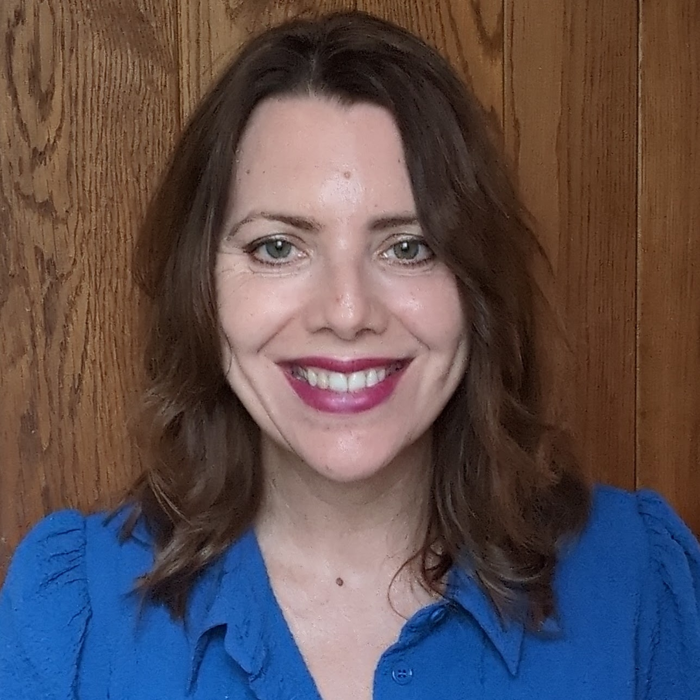Queering Vocal Pedagogy: Affirming Trans and Genderqueer Singers
Thursday 14th March 2024, 5:00 PM - 7:00 PM (London Time)
As a provocative renaming of gay and lesbian studies in the 1990s, “queer theory challenges the normative social ordering of identities and subjectivities” (Brown & Nash, 2016, p. 5). Though queer is used as an identity marker for some LGBTQIA+ persons, as a praxis, queer theory carves space for new perspectives and pedagogies. Annamarie Jagose (1996) explains, “Queer is widely perceived as a calling into question conventional understandings” (p. 97). When used as a verb, 'queering' calls on the re-examining needed to affirm transgender and genderqueer individuals. Thus, queering vocal pedagogy – as a way of querying vocal instruction with an integrated perspective of gender-expansive voices – is an iterative process to make singing instruction wholly welcoming and affirming of all identities.
The intent of queering vocal pedagogy is to maintain a close and critical observation of our traditional practices. Queering is more than inclusivity or a formula of 'best practices'. In music education, Gould (2013) applies queer theory in her discussion of “companion-able species”, where teacher and student, as companions, co-create learning and teaching. Gould inspires queering vocal pedagogy to be an inquiry and interrogation in all domains of vocal teaching – from the socio-ecology of the studio to the technical know-how of singing, from teacher and student rapport to repertoire selection. As a disruption of the status quo, queering our teaching dismantles inequality, invisibility and marginalization in the teaching of singers.
Rooted in a multi-case research project, this session explores the experiences of transgender and genderqueer singers in private voice instruction. Through the lenses of six singers, including a teenage transgender woman, an adult transgender woman, two adult transgender men, and two adult trans/non-binary singers, this session imparts both practical and theoretical knowledge and brings attention to implicit biases that dominate the field of vocal pedagogy. Attendees will garner specific strategies in voice teaching, a greater understanding of affirming gender language, and an overview of the impact of gender in the teaching of singers.
Citations:
Browne, K. & Nash, CJ (2016). Queer methods and methodologies: An introduction. In Browne, K. & Nash, CJ (eds.), Queer methods and methodologies: Intersecting queer theories and social science research (pp. 1-23). Routledge.
Gould, E. (2013). Companion-able species: A queer pedagogy for music education. Bulletin of the Council for Research in Music Education, 197, pp. 63-75.
Jagose, A. (1996). Queer theory: An introduction. New York University Press.
Dr William Sauerland
Dr William Sauerland (he/they) is Assistant Professor of Music and Director of Choral Studies for the School of Music at Purdue University – Fort Wayne, conducting choral ensembles, teaching classes in applied voice and music education, and supervising student teachers.

Attend this course for as little as £22 as part of the Voice Professional Training CPD Award Scheme.
Learn MoreSorry, this is an archived short course...
We have plenty of upcoming short courses coming soon. See details of some of them below or look at the full list of short courses.

Tuesday 13th January 2026
5:00 PM - 6:30 PM
Tuesday 20th January 2026
5:00 PM - 6:30 PM
Tuesday 27th January 2026
5:00 PM - 6:30 PM
Tuesday 3rd February 2026
5:00 PM - 6:30 PM
Tuesday 10th February 2026
5:00 PM - 6:30 PM
(London Time)
Introduction to Postgraduate Academic Skills - Join Live!

Debbie Winter
Are you ready to elevate your academic journey? Hosted by our very own Debbie Winter, join our comprehensive Introduction to Academic Skills course, designed to equip you with essential tools and strategies for success in higher education. Perfect for bridging the gap between undergraduate and postgraduate study, this course offers a pathway to our full MA for students without an existing degree. We offer both live, interactive sessions and standalone, pre-recorded content.

Thursday 15th January 2026
5:00 PM - 7:00 PM
Thursday 22nd January 2026
5:00 PM - 7:00 PM
Thursday 29th January 2026
5:00 PM - 7:00 PM
Thursday 5th February 2026
5:00 PM - 7:00 PM
Thursday 12th February 2026
5:00 PM - 7:00 PM
(London Time)
Trauma-Sensitive Voice Professional Certificate with Dr Elisa Monti

Dr Elisa Monti
Updated for 2026, this five-part certificate course is designed to help participants learn the theory and practice of trauma-sensitive approaches. The concepts and activities included are tailored to meet the needs of voice specialists who want to acquire more specific tools to navigate the space with their students and colleagues.

Monday 9th February 2026
5:00 PM - 7:00 PM
(London Time)
Certificate in Applied Voice Pedagogy with Adam Roberts

Adam Roberts
Spring Immersive - live and interactive learning! This 12-week online programme is designed for voice professionals committed to deepening applied voice pedagogy skills and advancing professional practice. The course offers a rich environment to reflect on your teaching philosophy and develop applied pedagogical techniques. It is ideal for voice teachers, coaches, therapists, and performers seeking to bridge foundational knowledge with practical, student-centered applications.
